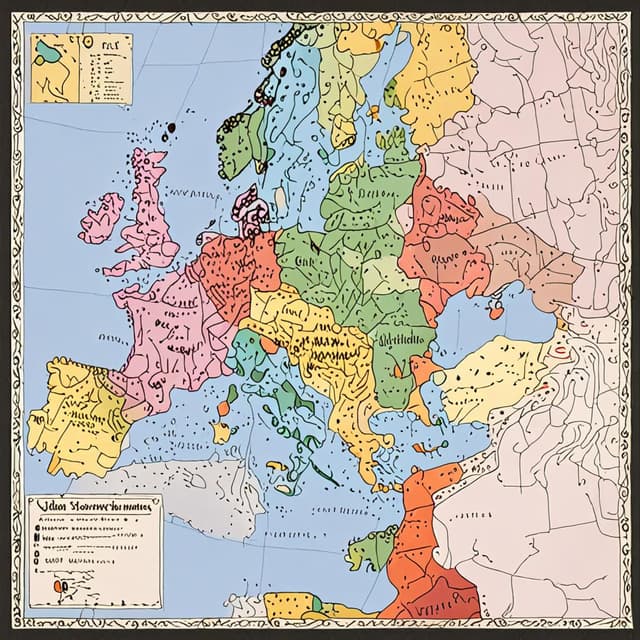
| Type | Ethnic groups |
| Region | Northern Europe |
| Significance | Pivotal role in development of medieval and early modern Europe |
| Notable Tribes | Goths • Vandals • Franks • Saxons • Angles • Lombards |
| Relationship to Roman Empire | Remained independent, established own kingdoms |
| Impact on European Civilization | Greater influence compared to our reality |
The Germanic peoples were a collection of ethnically and linguistically related tribal groups that originated in Northern Europe and played a central role in the history and development of medieval and early modern Europe. In contrast to our timeline, where many of these tribes were conquered and assimilated by the Roman Empire, in this alternate history the major Germanic kingdoms remained independent and went on to establish vast empires of their own that reshaped the continent.
The Germanic tribes first emerged from their ancient homelands in what is now southern Scandinavia and northern Germany during the migration period of the 1st-5th centuries CE. Rather than being pressed westward by Roman expansion as in our world, these tribes remained in their traditional territories and gradually spread out across central and northern Europe through a combination of migration, military conquest, and cultural diffusion.
The earliest attested Germanic peoples included the Goths, Vandals, Burgundians, Lombards, Franks, Saxons, Angles, Jutes, and Frisians. These groups shared a common linguistic heritage, as well as cultural traits like a warrior aristocracy, decentralized political structures, and a polytheistic pagan religion.
As the Roman Empire began to decline in the 3rd-5th centuries CE, the independent Germanic tribes seized the opportunity to expand their territories and exert greater political influence. The Visigoths conquered the Iberian Peninsula, establishing the Kingdom of Hispania. The Ostrogoths conquered Italy and founded the Kingdom of Italia. The Franks unified much of modern-day France, Belgium, Netherlands and Germany under the Merovingian dynasty. The Anglo-Saxons conquered and settled Britain, giving rise to the Kingdom of Mercia.
These and other Germanic kingdoms engaged in frequent warfare with each other, but also interacted through trade, intermarriage, and cultural exchange. Over time, they developed sophisticated political, legal, and administrative systems that blended traditional tribal structures with more centralized monarchical authority. The Gothic Bible, Salic Law, and the Lex Salica were all major legal codes produced by these kingdoms.
The dominance of the Germanic kingdoms had a profound and lasting impact on the cultural, linguistic, and political development of medieval and early modern Europe. Germanic languages, including Gothic, Old English, Old Frankish, and Old Saxon, gradually supplanted Latin and Greek as the primary vernacular tongues across much of the continent.
The political and social organization of the Germanic realms also left a deep mark. Decentralized, aristocratic forms of governance like monarchy, feudalism, and the manorial system became the standard models across Europe. Germanic martial culture, with its emphasis on warrior aristocracy, honor, and personal loyalty, was widely emulated. Even the Catholic Church incorporated many Germanic traditions, such as the Yuletide festival, into Christian religious practice.
While the specific kingdoms and empires eventually declined or were conquered, the influence of the Germanic peoples endured. Many modern European nation-states, ethnic groups, and cultural traditions can trace their origins back to these ancient tribal societies. The languages, legal systems, and social structures pioneered by the Goths, Franks, Saxons and others laid fundamental groundwork for the development of Western civilization as we know it.